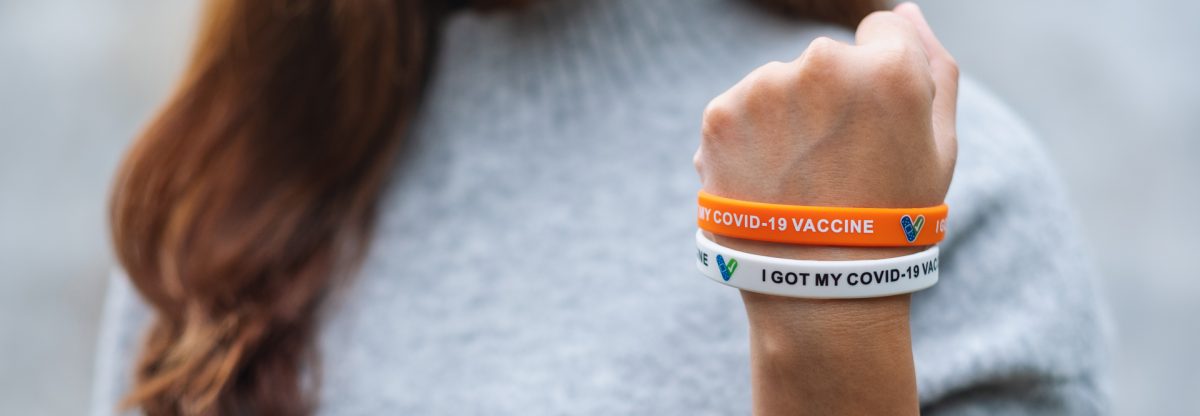- Coronavirus infections caused by the Delta variant, which has surged since July, now make up more than 99 percent of all new coronavirus infections in the United States.
- There’s been an increase in hospitalizations in recent months. The majority involve unvaccinated people.
- Although vaccine effectiveness has waned slightly against infection with Delta, data so far suggests the Moderna vaccine is approximately 50 to 95 percent effective against Delta, and the Pfizer-BioNTech vaccine is 39 to 96 percent effective against Delta.
- Even though vaccines offer different ranges of protection, real-world evaluations show they still provide robust protection against hospitalization at 60 to 95 percent.
All data and statistics are based on publicly available data at the time of publication. Some information may be out of date. Visit our coronavirus hub and follow our live updates page for the most recent information on the COVID-19 pandemic.
After the first COVID-19 case with the Delta variant was confirmed in the United States in May this year, the variant is now the sole dominating variant nationwide, making up more than 99 percent of all new coronavirus infections in the country.
The highly infectious variant was first identified in India in December. As with previous variants, it quickly spread to many countries across the world, including, most notably, the United Kingdom.
COVID-19 cases are quickly rising yet again in the United States. The average number of daily COVID-19 cases is more than 145,000, according to data from the Centers for Disease Control and Prevention (CDC).
Research has suggested that the Delta variant is an estimated 60 percentTrusted Source more transmissible than the Alpha variant, which could explain the rapid rise in cases in recent months.
A leaked CDC internal report said the Delta variant was much more contagious than the common cold, the 1918 Spanish flu, and severe acute respiratory syndrome (SARS), and may be as transmissible as chickenpox.
A preprint study from the Chinese Academy of Medical Sciences also found that viral loads of Delta infections are approximately 1,000 times higher than those caused by previous coronavirus variants.
Apart from being more infectious, the Delta variant could also be more deadly, several studies suggest.
A studyTrusted Source in Scotland found the Delta variant was twice as likely to lead to hospitalization.
Additionally, a cohort studyTrusted Source by Public Health England confirmed that among unvaccinated people, the Delta variant more than doubled the risk of hospitalization than the Alpha variant.
People also became more acutely ill with Delta-driven infections.
Areas with low vaccination rates in the United States have been seeing more significant surges in infections.
The latest situation in hot spots such as Arkansas, Florida, and Texas attests to this.
Hospitals in these states have announced critical shortages of oxygen supplies, and have said they’re fast approaching intensive care unit (ICU) capacity limits.
Since the Delta variant emerged, scientists have been trying to establish whether the current COVID-19 vaccines are as effective against it.
Recent studies show there’s been a slight decrease in observed effectiveness since March, when the Delta variant only made up 7 percent of COVID-19 cases in the United States.
By the time July rolled around, this figure skyrocketed to 94 percent.
Scientists say immunity may wane over time and new more infectious variants in a population may affect vaccine effectiveness, among many other factors.
However, according to the latest studyTrusted Source released by the CDC, unvaccinated people are over 10 times more likely to be hospitalized with COVID-19 than vaccinated people.
Unvaccinated people are also 11 times more likely to die of COVID-19 than vaccinated people, the study found.
We broke down what the current data says. New research could mean this data will change over time.
The Pfizer-BioNTech COVID-19 vaccine
Due to limited research so far, trying to determine the effectiveness of each vaccine against the Delta variant remains a challenge. However, there have been promising results from multiple studies.
Alpha versus Delta
Studies in ScotlandTrusted Source, the United States, and Qatar found that the Pfizer-BioNTech vaccine provides between 80 and 100 percent protection against any infection with the Alpha variant.
Studies in Canada, Scotland, and the United Kingdom suggest the vaccine offers the same range of protection for symptomatic infection as well.
As for protection against hospitalization, British and Qatari researchers found the vaccine was more than 90 percent effective against severe disease with the Alpha variant.
However, the same studies noted a slight drop in effectiveness, to around 80 percent, against any infection with the Delta variant.
The Qatar study recorded a bigger drop to about 60 percent. But the vaccine’s effectiveness remained above or close to 90 percent for hospitalization and severe disease.
Israeli data has also suggested that the Pfizer-BioNTech vaccine’s effectiveness against infection dipped to as low as 39 percent between June and July, down from the previous 64 percent.
These findings conflicted with U.K. data that found it to be 88 percent effective against symptomatic infection caused by Delta.
ESTIMATED EFFECTIVENESS OF PFIZER-BIONTECH VACCINE
Vaccine effectiveness was 87 to 96 percent for all outcomes before Delta, but now it’s 39 to 84 percent effective against infection and 75 to 95 percent effective against hospitalization.
The Moderna COVID-19 vaccine
Many lab studies and real-life data suggest the Moderna COVID-19 vaccine works against the Delta variant.
Alpha versus Delta
A preprint Mayo Clinic study suggests that the vaccine’s effectiveness against symptomatic infection with the Delta variant dropped from 86 percent to around 76 percent in July.
The vaccine’s effectiveness against COVID-19-associated hospitalization also decreased from over 90 percent when the Alpha variant was dominant to around 81 percent with Delta.
A preprint Canadian study found that one dose of the Moderna vaccine was 83 percent effective against symptomatic infection caused by the Alpha variant. This increased to 92 percent with both doses.
However, effectiveness decreased to 72 percent for the Delta variant with one dose. The study could not reliably estimate protection with two doses.
ESTIMATED EFFECTIVENESS OF MODERNA COVID-19 VACCINE
Vaccine effectiveness was around 80 to 95 percent for all outcomes before Delta, but now it’s 50 to 72 percent effective against infection and over 80 percent effective against hospitalization.
The Johnson & Johnson COVID-19 vaccine
There’s little data that shows how effective the Johnson & Johnson (J&J) single-shot COVID-19 vaccine is at protecting against the Delta variant.
Alpha versus Delta
A clinical trial suggests the vaccine is 85 percent effective against severe disease. In the study, it demonstrated “strong, persistent” protection against hospitalization and death.
Another study, which has not yet been peer-reviewed and only examined 27 people, suggests the J&J vaccine is 67 percent effective against the Delta variant.
The study also found the vaccine produced fewer antibodies against Delta than it did for the Alpha variant, but scientists say it may not accurately reflect the vaccine’s real-life performance.
The most recent findings, and the only real-life data, are from South Africa, which suggests that the vaccine offers about 71 percent protection against hospitalization when the Delta variant dominates.
ESTIMATED EFFECTIVENESS OF J&J COVID-19 VACCINE
As with other vaccines, the J&J vaccine shows a slight dip in effectiveness against the Delta variant, but more comprehensive studies are needed to reach a definitive answer.










